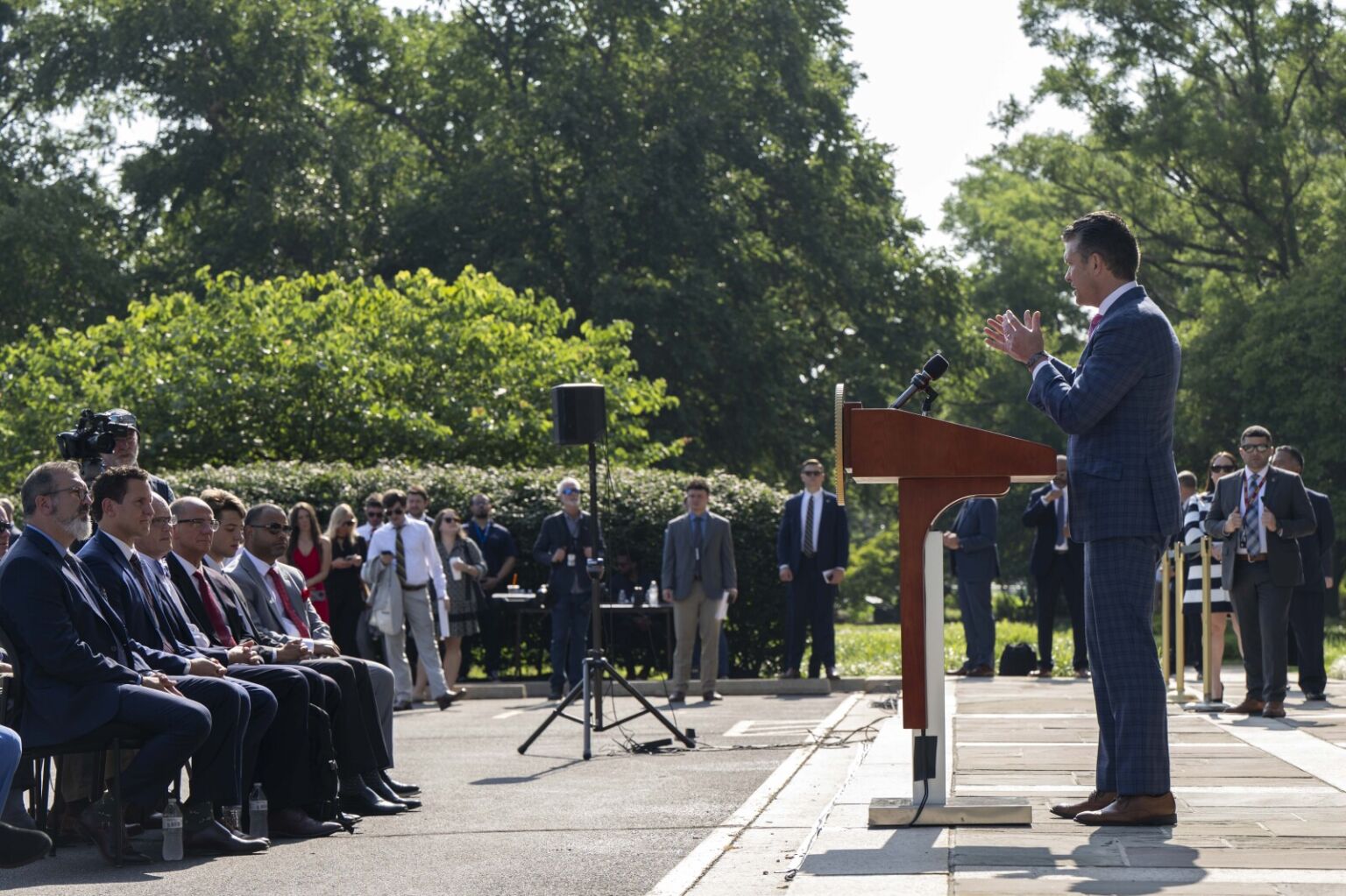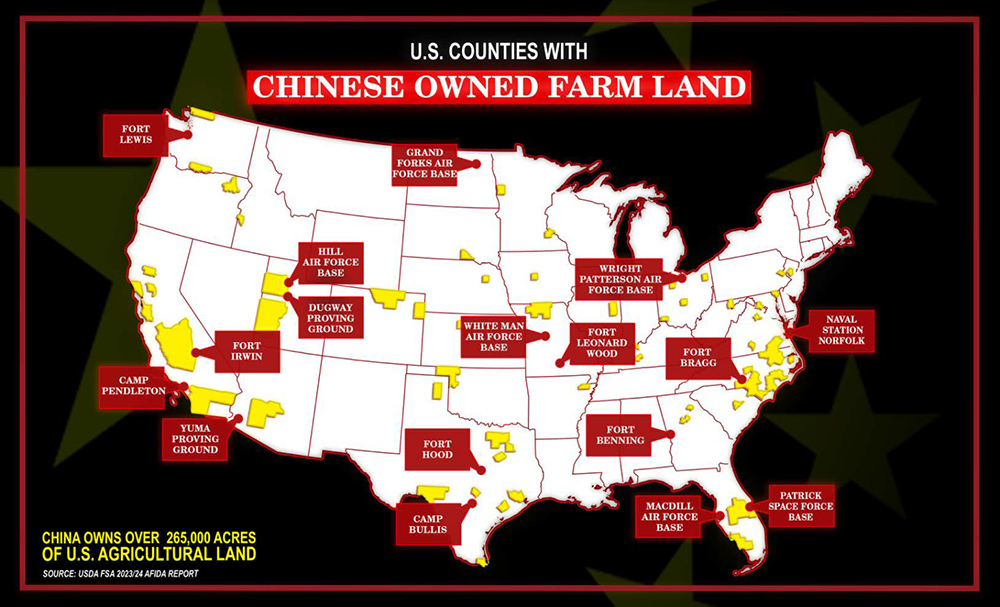The Department of Agriculture announced a new governmentwide, multiprong effort focused on ensuring America’s ability to secure its own food supply, in part by eliminating interference from adversarial nations.
But the National Farm Security Action Plan isn’t just about food or farms. The Defense Department benefits as well.
Agriculture Secretary Brooke Rollins explained the significance of the first action item in the National Farm Security Action Plan, which she said is likely the most important.
“The first of the seven is securing and protecting American farmland ownership, actively engaging at every level of government to take swift legislative and executive action to ban the purchase of American farmland by Chinese nationals and other foreign adversaries,” she said.
Part of that, she said, also involves using presidential authorities to reclaim farmland in the U.S. that is now owned by foreign adversaries.
While keeping farmland in the hands of American farmers rather than businesses affiliated with adversarial foreign governments secures the ability of the U.S. to always produce food to feed Americans, it serves a second purpose as well.
In some cases, farmland purchased by investors associated with adversarial foreign governments is situated around U.S. military installations, which means foreign ownership of that land is both a threat to America’s ability to ensure its own food supply and also a threat to broader American security because it puts those installations at risk.

Defense Secretary Pete Hegseth speaks during an Agriculture Department press briefing in Washington, July 8, 2025. © Air Force Staff Sgt. Madelyn Keech, DOD
“As someone who’s charged with leading the Defense Department, I want to know who owns the land around our bases and strategic bases, and getting an understanding of why foreign entities, foreign companies, foreign individuals, might be buying up land around those bases,” Defense Secretary Pete Hegseth said. “That’s something I should be paying attention to, on behalf of the American people, on behalf of my department and on behalf of the president.”
Food security, energy resilience and water resources, Hegseth said, are all part of national security, especially in contingency situations.
“We would be asleep at the wheel if we were not fully a party to an effort like [the National Farm Security Action Plan] to ensure that our nation had the food supply it needs, but specifically our troops have what they need on our bases, so that in those moments, you can rely on us here in the United States to provide that security,” Hegseth said. “No longer can foreign adversaries assume we’re not watching and we’re not paying attention and we’re not doing something about it — because we are.”
As part of the National Farm Security Action Plan, the USDA will work with state and congressional partners to take needed action to end direct or indirect purchase or control of American farmland by nationals from countries of concern — including China, Russia, Iran and North Korea.
“At the Department of Defense, we care about homeland security,” Hegseth said. “Energy security, food security, [and] water security is national security. And so when you look at our bases here in the United States or around the world, we ought to know who owns that land around strategic bases. Where are they from? Are they Americans, and if not, why?”

The Chinese own over 265,000 acres of U.S. agricultural land in the United States. Some of that land is near U.S. military bases. © USDA
Hegseth told Rollins that the USDA’s National Farm Security Action Plan will help DOD get better security for U.S. bases.
“Your plan helps us address that,” Hegseth said. “We’re excited to partner with you. Thank you for your leadership. Anything we can do, let us know, and this is all part of securing America and American citizens and putting America first — it’s common sense for us.”






